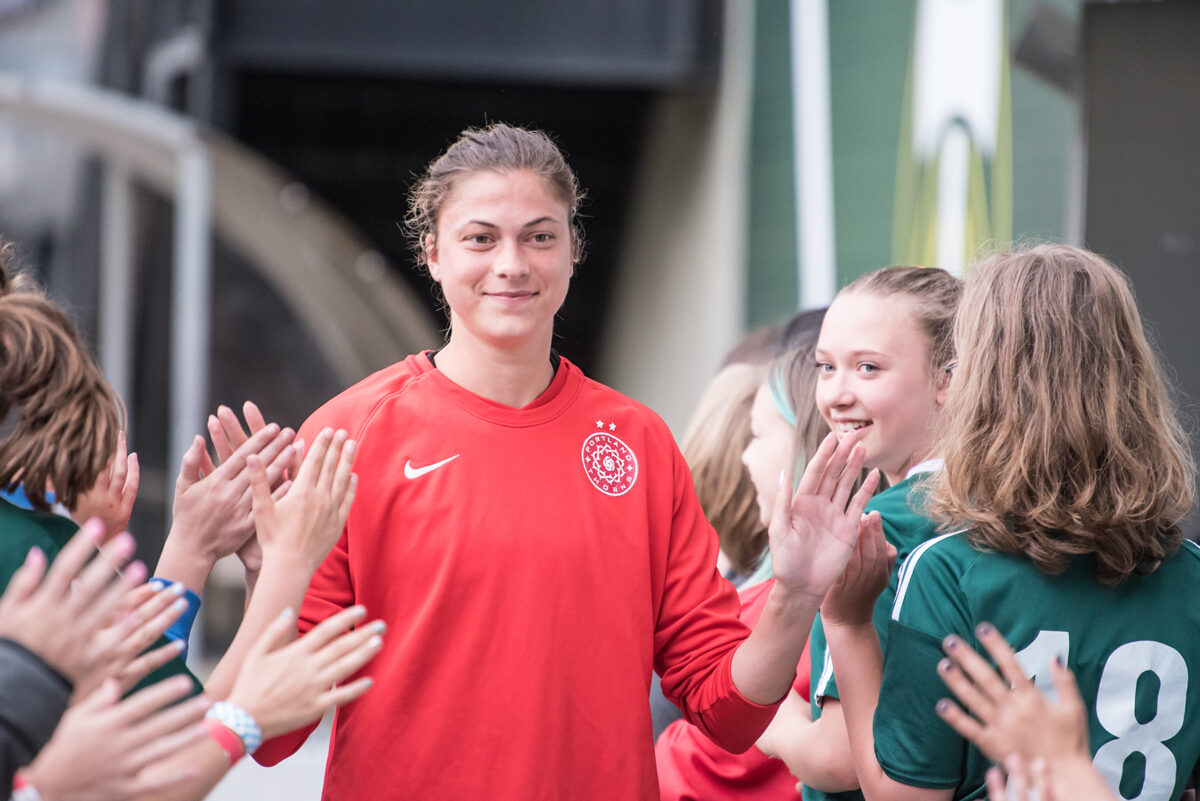The Portland Thorns depart the NWSL Challenge Cup in the semifinals after losing 1–0 to the Houston Dash on a Rachel Daly header. The Thorns defense, excellent all tournament, could only be breached after Sophie Schmidt’s header hit the bar and left Britt Eckerstrom stranded.
Lindsey Horan was listed as an available sub but was dressed in street clothes on the bench. Horan recorded the second most minutes of the team through the opening stages (aside from Christine Sinclair, of course) and Celeste Boureille took her place.
After the game, Mark Parsons said that the team had left it all on the field against North Carolina to get the win, and they played their worst game of the tournament today. The Dash kept Portland under constant pressure in midfield that they couldn’t play their way out of, and despite how well the Thorns defended, they can’t have too many complaints about being sent home at this stage.
The Thorns have defended well all tournament, but just couldn’t make their attack work
The Thorns stuck with the diamond this game, with Morgan Weaver and Simone Charley, their best available strike partnership, up top. With Boureille bogged down deep in midfield trying to handle Houston’s strikers dropping deep, those two had very little in the way of support, and were often tasked with chasing down balls over the top just to try to stretch play at all. Raquel Rodríguez had too much to do to offer much support either. In fact, the brightest attacking spark came from substitute Emily Ogle, who in her role as a deep playmaker provided some of the best service from deep the Thorns were able to manage all game.
That’s telling. The Thorns are a team that like to work their way into shooting opportunities on a second or third pass to maximize the expected goal average of any given attack, and get into the position to make those decisive passes with incisive running. Rodríguez, one of the Thorns’ best attacking players this tournament, couldn’t get forward to do what she does best, and the team was too slow to recognize that they needed more quality passing from deep to unlock the Dash.
On the other end, however, Kelli Hubly and Emily Menges were both excellent, with Menges making several decisive tackles to break up counterattacks, most memorably to stop a Nichelle Prince run where it looked like she would be in on goal.
Houston had plenty of attacks this game despite having a minimal amount of possession. They went on the break quickly whenever they forced a turnover. But despite all that, the Thorns restricted them to very few good chances. They just turned one of their two into a goal.
Attacks from out wide look as bad as ever
Crosses are always a low percentage attack. See Portland’s efforts late on in the opening stages of the tournament, and North Carolina’s efforts against Portland. They looked particularly pointless here, with Houston connecting on only two of fourteen crosses and Portland only three of twelve. In part, it’s down to timely defensive interventions in the middle of the park from the Thorns, but they also mostly just let Houston have that space. Of course, it doesn’t matter how inefficient a team’s attack is sometimes: all it takes is a moment of chaos for a team to score, and Houston produced more of those than Portland.
Houston’s pressure in midfield was about the only thing that was working anyone
The Dash had many of the best attacks of the game, but couldn’t create many shooting opportunities. The Thorns had most of the possession, but couldn’t do anything with it. Just about the only effective play happening anywhere for most of the game was Houston’s midfield pressure. Rachel Daly and Nichelle Prince are two extremely active forwards: one or two would almost always be putting pressure on the Thorns backline while they were trying to play from deep, which meant that most of the Thorns possession in the game took place well away from goal.
Houston’s back line played very high to compress the space available to Thorns midfielders, and in that space, they were able to bring a ton of bodies in to break up any attempt by Salem or Boureille to play forward. Whenever Sinclair had the ball, they were quick to close her down. Ogle and Gabby Seiler came on in midfield after halftime and improved the situation by getting better passing from that area, but even though Weaver and Charley are fast, neither of them are really strikers that thrive on balls over the top. They like to play to their feet and attack their defender, and Houston didn’t let anyone on the Thorns have that.

